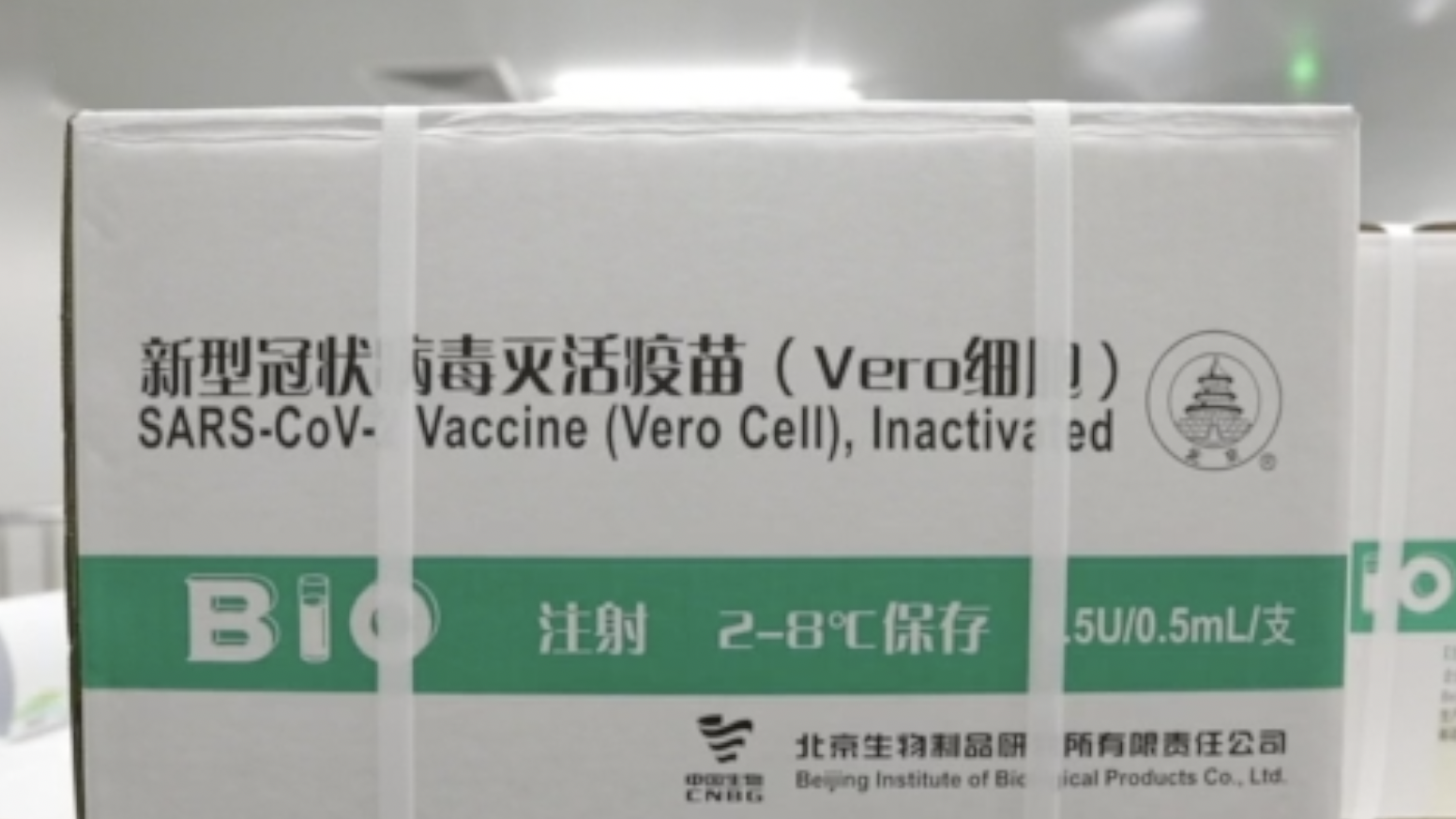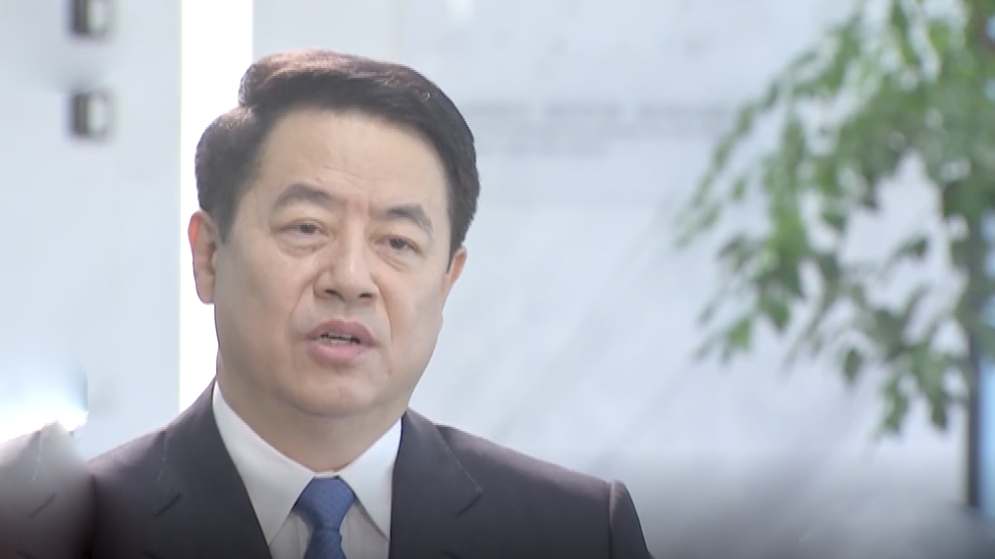The World Health Organization (WHO) announced the approval of the Sinopharm vaccine for Emergency Use Listing (EUL) on Friday, making it the sixth vaccine to receive the WHO validation for safety, efficacy and quality. CGTN spoke to Yang Xiaoming, chairman of Sinopharm China National Biotec Group (CNBG), about the significance of the approval, future production capacity challenges, and the Good Manufacturing Practices (GMP) certification issued by Hungary in April. Yang also talked about China achieving herd immunity by early 2022 and a new vaccine that is currently under clinical trial in China.
00:28

CGTN: What's the significance of WHO approval for Sinopharm CNBG's vaccine?
Yang: On Chinese Lunar New Year Day last year, the WHO sent specialists to our Beijing Institute of Biological Products for an on-site inspection. All of our staff were at the production site to meet the inspection group. The approval would show that the international community recognizes that the research and development, production and safety of our inactivated COVID-19 vaccines are in line with international standards. Most importantly, after the WHO's approval, our vaccines will be able to contribute more to the global fight against the pandemic, as the vaccines enter the global procurement and supply system.
01:54

CGTN: What are the challenges in terms of production capacity for the Sinopharm CNBG's vaccine? How will these challenges be dealt with?
Yang: Demand for COVID-19 vaccines is high, far exceeding the demand for our usual vaccine products. Our initial design was 100 million doses, which later was expanded to 1 billion, and in the third phase to 3 billion. In addition to the two biological institutes in Beijing and Wuhan, we also have four biological institutes in the cities of Changchun, Lanzhou, Chengdu and Shanghai, which have joined in the production of packaging. We are currently in the third phase of workshop construction, which will greatly increase our output. At the same time, we have made contact with a number of foreign countries, who will also take part in packaging. Until now, CNBG has produced the most coronavirus vaccines sent to foreign countries, 200 million doses. The vaccines have been approved for registration, marketing and emergency use in more than 60 countries and regions, and have helped 80 countries. More than 100 countries plan to use it.
CGTN: The Sinopharm vaccine, the first Chinese jab approved for use in the EU, is also GMP-certified. How will this help its vaccine distribution globally?
Yang: This is the first time a Chinese vaccine has been certified by an EU country. It is also the first vaccine certification issued by the Hungarian government. Their experts of pharmaceutical supervision also carried out strict on-site inspection and assessment at the CNBG's Beijing Institute of Biological Products. They issued the certificate after they went back. This shows that our standards and quality production specifications meet EU requirements. We are also in active communication with the EU in order to obtain further approval.
01:35

CGTN: Tell us more about the new recombinant vaccine that's undergoing early-stage clinical trials in central China's Henan Province. What are the essential differences between this one and the one currently in the market?
Yang: This is a new process. It's based on a region of a surface receptor on the spike protein on the surface of the novel coronavirus. After computer designs, the genes are synthesized, so it's relatively targeted. Second, it's made by genetic recombination. It's high yield. There's no live virus needed for this vaccine, so the production facilities are relatively simple, and there's no limit on quantity. At the same time, it has good specificity to the binding domain of coronavirus. Whether it is an inactivated vaccine, an adenovirus vector vaccine or a recombinant gene protein vaccine, as long as they are proven effective, they can all be helpful in preventing and controlling the pandemic.
CGTN: China has administered more than 200 million COVID-19 vaccine doses domestically. Do you think we'll see herd immunity by this time next year?
Yang: Since the beginning of this year, the national disease control system, including the National Health Commission and governments at all levels, have been organizing the public to get vaccinated. We are speeding up the production and supply of vaccines. We expect by around the end of this year and the beginning of next year, the immune barrier of one billion people should be achieved.

